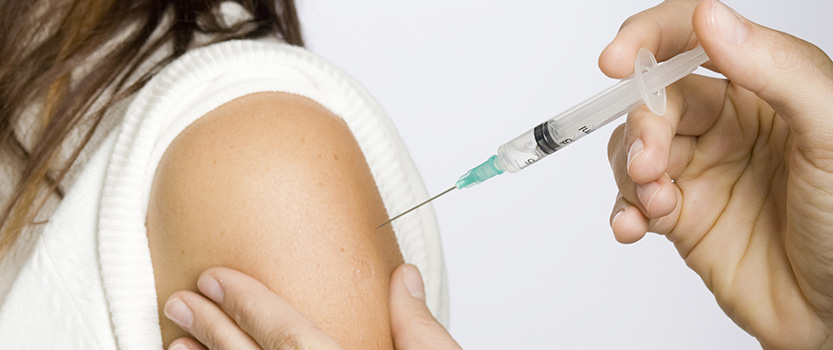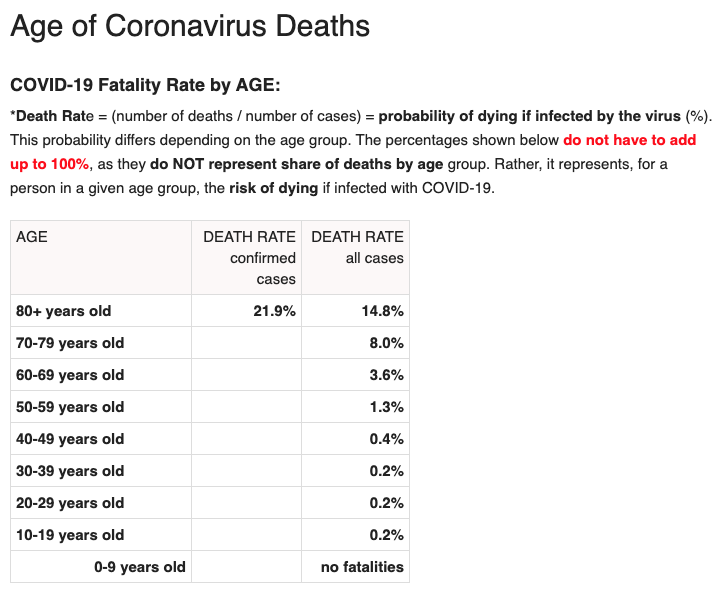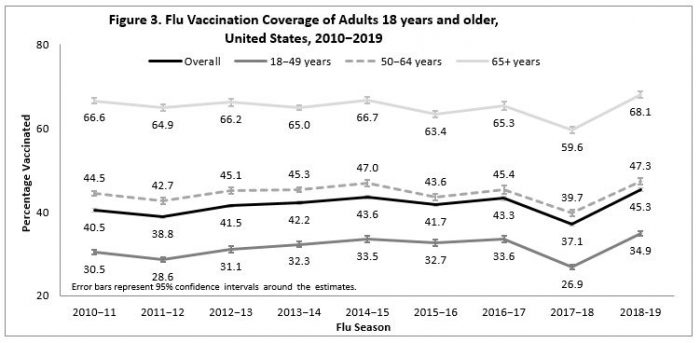People Who Got Flu Vaccine This Year May Be More Susceptible to Coronavirus

The novel coronavirus (COVID-19) that is wrecking havoc on lungs and economies around the world is particularly bad for two groups of people: elderly and front-line healthcare workers.
Initial data show that elderly are dying at a significantly higher rate than young people:

This seems reasonable, especially if the elderly in question have heart problems or smoke (which is the case in heavily-hit Italy).
But what about the other population that is badly affected—front-line healthcare workers, two of which are in critical condition at the time of this writing?
“We know the high mortality in older people, but for reasons that we don’t understand front-line health care workers are at great risk for serious illness despite their younger age,” said Dr. Peter Hotez, dean of the National School of Tropical Medicine at Baylor College of Medicine in Houston.
The answer and what Hotez may not want to accept is that people who receive the flu vaccine may be at a higher risk of developing non-influenza respiratory disease.
A study from January reported:
Receiving influenza vaccination may increase the risk of other respiratory viruses, a phenomenon known as virus interference. Test-negative study designs are often utilized to calculate influenza vaccine effectiveness. The virus interference phenomenon goes against the basic assumption of the test-negative vaccine effectiveness study that vaccination does not change the risk of infection with other respiratory illness, thus potentially biasing vaccine effectiveness results in the positive direction.
They specifically tested against coronavirus:
Vaccine derived virus interference was significantly associated with coronavirus and human metapneumovirus; however, significant protection with vaccination was associated not only with most influenza viruses, but also parainfluenza, RSV, and non-influenza virus coinfections.
We know from CDC data that nearly 70 percent of the elderly get the flu shot compared to under 40 percent for those under the age of 50:

We also know that front-line healthcare workers are required to get annual flu vaccines. Virus interference may explain the higher risk healthcare workers face despite being younger and healthier in general.







